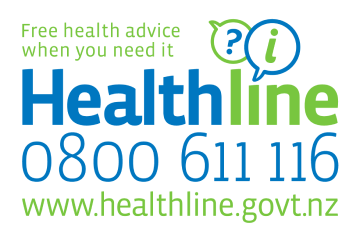COVID-19 Immunisation For Children
COVID-19 Immunisation For Children
Find out why it's important for tamariki (children) to have the COVID-19 vaccine. It's especially important for those with underlying health conditions such as asthma, diabetes and heart conditions (like rheumatic heart disease).
Why immunise my child against COVID-19?
COVID-19 is a respiratory disease that affects your lungs, airways, and other organs.
Tamariki can:
- be infected with the virus that causes COVID-19
- get sick from COVID-19
- spread COVID-19 to others
Immunising tamariki and rangatahi (young people) helps keep them safe and helps protect your whānau (family) and community from COVID-19.
Immunising children against COVID-19
COVID-19 vaccines are free for everyone aged 5 and over. They are also available to tamariki from 6 months who are at greater risk of severe illness if they were to get COVID-19.
How many COVID-19 vaccines your child can get and when to get them depends on their age.
Are some groups of children at higher risk from COVID-19 ?
Tamariki and rangatahi, with some medical conditions, have an increased risk of getting severe COVID-19 and ending up in hospital.
These conditions include:
- breathing conditions (like severe asthma and cystic fibrosis)
- diabetes
- disabilities involving the nervous system (like cerebral palsy)
- heart conditions (like rheumatic heart disease)
It's very important that these tamariki have the COVID-19 vaccine. It's also important that parents and caregivers of these tamariki and rangatahi have the COVID-19 vaccine.
See the Te Whatu Ora | Health New Zealand website for more information
What about consent for the COVID-19 vaccine for children?
Tamariki will need consent given on their behalf before they can have the vaccine. No child aged 5 to 11 will be able to have the COVID-19 vaccine without the express consent of one of their parents or caregivers.
Each whānau can decide if they want this extra layer of protection for their child.
Making an informed decision
Watch a short video about making the decision to vaccinate your child against COVID-19 and being informed.
Side effects and reactions
Like most medicines, vaccines can sometimes cause reactions. Reactions are usually mild, and not all tamariki will get them. Your child might have some mild side effects 1 to 2 days after their immunisation.
Mild reactions are normal. They show that your child's immune system is responding to the vaccine.
Find out about common vaccine side effects or reactions and what to do if you have any.
How can I book COVID-19 immunisation for my child?
You can book through the Vaccination Healthline on 0800 28 29 26 (available 8.30am to 5pm) or online.
You can book your vaccine online here
How can I help my child prepare for a COVID-19 immunisation?
See the KidsHealth page on preparing your tamariki for their COVID-19 vaccine.
See the KidsHealth page on supporting children and young people having the COVID-19 vaccine.
Can my child still have the COVID-19 vaccine if they have had COVID-19?
Yes, but the timing of vaccine will be slightly different. Talk to a health professional, and they can advise you on the best time for your child to be immunised after COVID-19.
Can my child have the COVID-19 vaccine with other immunisations?
No spacing is needed between the COVID-19 vaccine and other vaccines. Tamariki aged 5 years and over can have other vaccines (such as flu or HPV) before, after, or at the same time as their COVID-19 vaccine.
This page last reviewed 17 July 2024.
Do you have any feedback for KidsHealth?
If you have any feedback about the KidsHealth website, or have a suggestion for new content, please get in touch with us.
Email us now